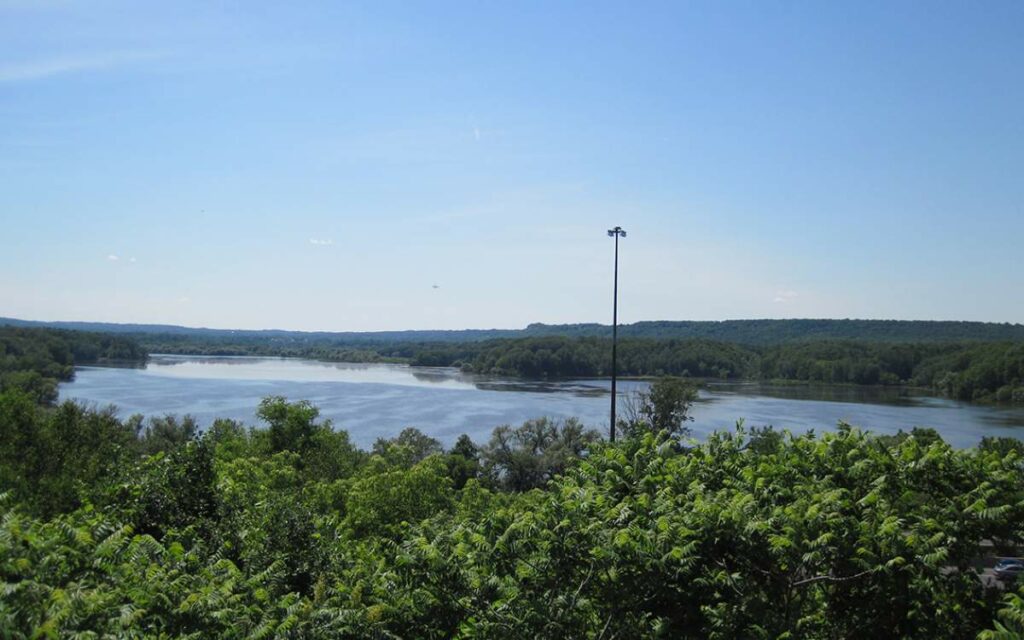
Latest move in ongoing ‘Sewergate’ saga involving massive, years-long sewage leak into Chedoke Creek. Photo credit: Royal Botanical Gardens
In the latest development in a long saga involving the City of Hamilton, the Government of Ontario, and the Haudenosaunee Development Institute (HDI), Hamilton is now seeking court intervention to force the province to get involved in the Chedoke Creek dredging dispute.
The city was ordered by the Ontario government to dredge the creek, a process which involves vacuuming up 22,000 tonnes of polluted sediment from the waterway.
The order came after revelations of a sizable four-year sewage leak, dubbed “Sewergate,” that spilled 24 billion litres of untreated water into the creek.
The $6-million project was scheduled to start on August 18, 2022. The city was supposed to complete decontamination by December 31, 2022, but had to put the process on hold due to a dispute with a local Indigenous group.
The City of Hamilton then asked the Ontario Ministry of Environment, Conservation, and Parks (MECP) for a one-year extension to the deadline. An extension was granted, and the new deadline was set for December 31, 2023.
But then, wanting to prevent further ecological impacts, the province issued permits allowing the city to begin as soon as possible and moved up the dredging deadline to August 31, 2023.
That move caught the city off guard and prompted Hamilton councillors on March 9 to submit an appeal asking for the December 2023 deadline to be reinstated.
Before the appeal could even be filed, city officials announced that they had reached a compromise with MECP to complete dredging by October 31, 2023.
However, it remained unclear how the city would attempt to resolve the ongoing situation with the HDI, an Indigenous group that is made up of hereditary Six Nations leaders.
When the city began clean-up of the creek, HDI staged various interruptions, saying that the municipality needs to seek consent prior to any clean-up activities and that HDI must have an active role in monitoring the project.
The contractor in charge of the clean-up, Milestone Environmental, reported nearly 40 “incidents of disruption,” including “dangerous” intrusions into construction areas.
Equipment has also been stolen from the site. As a result, decontamination had to stop and the group said that they will only restart work when a safe workplace can be guaranteed.
The city previously called on the province to get involved in the dispute, asking Ontario’s Environment Minister David Piccini if he would issue a minister’s access order under the Environmental Protection Act.
The province said that such an order was “not appropriate” and that the dispute is up to the municipality to solve. The Minister’s office also said the city has the proper tools to solve the issue.
Indeed, the city could apply for an emergency court injunction that would allow them to remove protesters if needed.
A court injunction was even suggested by Hamilton Police, but city staff responded that they do not want to go that route unless absolutely necessary because they do not want to harm Indigenous-municipal relationships.
As an alternative, City of Hamilton lawyers are asking for the courts to compel Piccini’s office to issue the access order that had previously been refused.
A judicial panel is expected to hear the matter on June 13, 2023.
If the panel does not side with the city, they will reportedly be contending the October 31 cleanup deadline in court.
In addition to wanting the city to ask for its consent, HDI also wants the city to pay almost one million dollars, claiming that they need $350,000 in compensation plus $585,000 to place multiple individuals on standby to monitor the project at a cost of $15,000 a day.
It should be noted that Hamilton City Council already has agreements with and has compensated the Mississaugas of the Credit, Six Nations of the Grand River elected band council, and Huron-Wendat Nation. Each group received $40,000 from the city.
The amount HDI is asking for is about 23 times the amount that other groups received.
The city is reportedly open to Indigenous monitoring, but there are worries that “seeking consent” for the project will be a precedent-setting action that will mean the city will be required to seek consent to any number of future municipal projects.
Municipal staff are also reportedly only open to covering some of the monitoring costs, nowhere near the almost one million dollars that is being demanded.
The key difference between the Six Nations of the Grand River council (with which the City already has an agreement) is that the entity is an elected body, while HDI is a group of hereditary leaders.
Indigenous elected councils and hereditary councils have been at odds on a number of issues over the years with internal governance conflicts.

Based in Hamilton, he reaches hundreds of thousands of people monthly on Facebook, Instagram, TikTok, and Twitter. He has been published in The Hamilton Spectator, Stoney Creek News, and Bay Observer. He has also been a segment host with Cable 14 Hamilton. In 2017, he received the Chancellor Full Tuition Scholarship from the University of Ottawa (BA, 2022). He has also received the Governor General’s Academic Medal. He formerly worked in a non-partisan role on Parliament Hill in Ottawa.


















